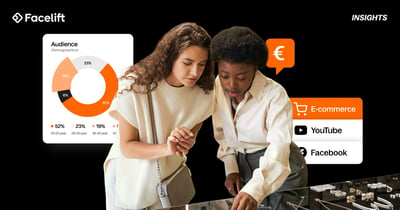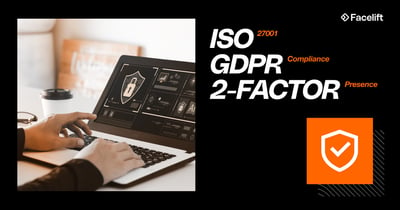Social media has become as much a part of marketing strategy as beer is to the image of Germany. It just goes together.
The networks offer us the opportunity to reach our target groups worldwide and increase our brand awareness. But to be successful in social media, it is not enough to create profiles and occasionally post content.
A social media strategy requires careful planning, commitment, ongoing analysis, and a deep understanding of ever-changing algorithms and trends. Many companies feel intimidated and shy away from the effort involved in the various platforms. This is where social media management tools and agencies come in.
Choosing between a social media management tool and an agency can be a real challenge, as both options have their pros and cons. In this article, we highlight the most important factors to consider when deciding between these two options.
Social Media Management Tools
As with everything, social media management has its pros and cons. Here is a handy overview of the pros and cons of social media management tools:
The Pros
- Cost efficiency: Costs always depend on the scope of your social presence and your goals. Social media management tools are often a more cost-effective option than hiring an agency. They offer a variety of features to help you manage your social media presence. This gives you control over your channels and the confidence to book them as earned media. You are responsible for success and failure and can respond to events on the fly.
- Time savings: These tools allow you to schedule and automate posts, saving you valuable time. You can create and schedule posts in advance, even when you're not online. This is especially useful during the holiday season.
- Detailed analytics: Most tools offer extensive analytics to help you measure the success of your posts. This allows you to continually optimize your strategy.
- The knowledge base: Most social media management tools have an extensive help section, where many of your questions are answered on demand. Help for self-help.
The drawbacks:
- Limited creativity: Social media management tools are of limited help when it comes to creativity and finding ideas for content. You can schedule posts, but the creative design is up to you. However, artificial intelligence like Lifty, a tool we have integrated into Facelift, can help you create content faster.
- Learning curve: Using a tool requires time and effort to learn how to use it. Getting the most out of the tool requires a time investment, especially in the beginning.

Social Media Agencies
Many disadvantages of social media management tools are also advantages of agencies. And vice versa. Here is an excerpt.
The advantages:
- Professional know-how: Agencies have a team of professionals with extensive knowledge of social media marketing. They know the latest trends and best practices and have experience with other companies that you can benefit from.
- Creative resources: Agencies can develop creative content that appeals to your target audience. They have designers, copywriters, and other experts who can create customized content.
- Time savings: Outsourcing the management of your social media presence to an agency allows you to focus on other areas of your business.
But: Don't forget that you'll still need to play the role of information officer and coordinate with the agency on a regular basis.
The drawbacks:
- Cost: Hiring an agency can be expensive, especially for small businesses. Costs vary depending on the scope of services, but a full social media service package can easily cost several thousand dollars per month.
- Communication: Working with an agency requires clear communication and coordination. Mismatched expectations can lead to problems. Project coordination for content planning can also be challenging, leading to long email cascades or endless Asana chats. In particular, shared Excel spreadsheets and Google Docs in their various versions often lead to failure and expense.
How do you make the right choice?
The following considerations can help make your decision easier:
- Budget: Your financial situation plays an important role. If you have a limited budget, social media management tools are a more cost-effective option. If you have more flexibility, an agency may be a better choice. Need some help planning your social media budget? Add our help article to your reading list.
- Time and resources: If you already have the resources and staff to manage social media yourself, tools can help. If you are a one-man marketing show, an agency can ease your workload and provide long-term relief.
- Goals and expertise: Think about what you want to achieve with your social media presence and how much expertise you need to achieve it. If you want to run more complex campaigns, an agency can help.
- Flexibility: If you want to maintain full control over your social media strategy, tools are a better choice. If you want to outsource some of the responsibility, an agency is the better choice.
As with everything else in life, you rarely choose black or white, but one of the shades of gray in between. And when it comes to social media, a mix is usually the best solution. Read more about this in the best practice below.
Combining tool & agency
Here are some ways you can combine tools and an agency in your social media strategy:
- Tool for the day-to-day: Use social media management tools for the day-to-day management of your social media presence. You can schedule, automate, and publish posts. You can track your engagement and perform basic analytics to save time and resources.
- Content creation: Have an agency create creative content such as graphics, videos and copy. You can then upload this content to your social media management tools and incorporate it into your scheduled posts. The agency can also provide campaign ideas that you can implement using the tools.
- Audience analysis and strategy development: Use the agency's expertise to better understand your target audiences and develop an effective social media strategy. They can help you define clear goals and KPIs, and ensure that your social media efforts are aligned with your business objectives.
- Paid: If you want to incorporate paid advertising into your social media strategy, the agency can help you create ads and manage your budget. You can then use the tools to schedule and monitor the ads.
- Monitoring and Analysis: Use the rich analytics capabilities of social media management tools to track the success of your campaigns and posts. The agency can analyze this data and make recommendations to optimize your strategy.
- Crisis Management: In the event of a social media crisis or unexpected event, the agency can help you respond and communicate with your audience while using the tools to publish quick updates.
- Training and knowledge transfer: Benefit from the agency's experience and let them train you. This will allow you to become more knowledgeable about each network and posting format. This gives you more control over your social media activities if you want it.
The combination of tools and agency allows you to take advantage of the best of both worlds. You get professional help with strategy development, content creation and analysis, while retaining control over the day-to-day operations. The exact division of tasks and responsibilities should be done in close coordination with the agency to ensure that your social media strategy works smoothly and your goals are achieved. We have put together some best practices for you.
Collaboration & Agency Best Practices
Collaboration between agencies and companies in a social media management tool can be a nightmare without rules. Therefore, we would like to help you with some steps and best practices to make the collaboration effective and proactive to ensure smooth communication, planning and execution of the social media strategy.
- Establish clear roles and responsibilities: Define the roles and responsibilities of the agency and the company. This may include content creation, post scheduling, social media monitoring, interpretation of analytics, etc.
- Permissions and access levels: Make sure all team members have appropriate access to the social media management tool. Agency employees typically do not need full access to company accounts, while the company retains control over sensitive data. With granular settings for roles and permissions, you can share only certain networks or responsibilities, such as community management, with the agency.
- Clear communication channels: Determine how communication will take place between the agency and the company. This may include regular meetings, status updates, or the use of project management tools such as Asana or Slack.
- Content calendar: Use the calendar in the social media management tool to schedule posts in advance. Make sure both the agency and the company can see the content plan and make changes. This shared content calendar also has space for campaigns, holidays, and events so you can keep track of everything together.
- Content workflow: Implement a clear workflow for creating, approving, and publishing content. Define how content is created, reviewed, and approved to avoid miscommunication and delays.
- Hashtags and keywords: Define common hashtags and keywords to use in posts to maximize visibility and engagement.
- Monitoring and response: Determine how to respond to comments, messages, or reactions to posts. Clarify early on who is responsible for interacting with customers.
- Reporting and analysis: Determine what metrics and reports should be created to measure the success of the social media strategy. Sharing analytics allows both sides to review and adjust the strategy.
- Regular meetings: Schedule regular meetings to review collaboration, celebrate successes, and address challenges. This promotes continuous improvement in collaboration.
Conclusion: Which solution?
You can use social media management tools to facilitate day-to-day management and, if necessary, hire an agency to develop specific campaigns or provide additional expertise. Ultimately, the choice between a social media management tool and an agency depends on your individual needs, goals, and resources. A combination of social media management tools and an agency can be a very effective strategy for getting the best of both worlds.
Choosing the right social media management tool is also critical. There are several tools, such as Later, Buffer, and others, that can facilitate collaboration between agencies and businesses. Make sure the tool you choose has the features you need for planning, analytics, team collaboration, and more. Curious? Facelift is the tool that offers you the widest variety of user permissions for your business, as well as many helpful collaboration features for coordinating with agencies or your own staff. Lay the foundation for successful social media management now & request a free demo.







